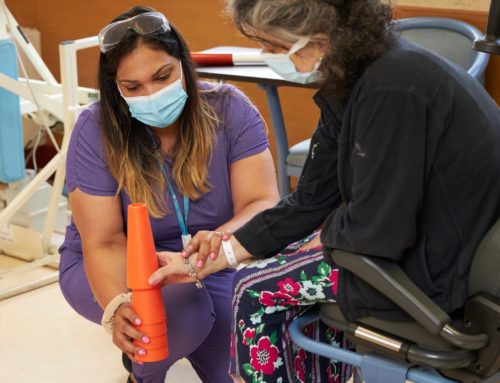Early Signs of Memory Issues – Can You Reverse Them?
We all have brief memory lapses when temporarily misplacing our keys or forgetting to return a call. For some, these gaps are normal signs of aging or the result of a temporary or treatable medical problem. For others, such slips are warning signs of progressive memory issues. These are often caused by cognitive problems like Alzheimer’s or other types of dementia. Whether you can improve or reverse the symptoms or not, depends on the severity of the condition and everyone is different.
If you’re only forgetting things occasionally, you’re likely tired or stressed and have nothing serious to worry about. When the issue becomes more frequent, it may indicate the beginnings of a neurological disease. In this case, seeking medical advice is vital, including the best treatment to slow the progression. Your doctor will also recommend to stay mentally and physically active, and practice brain exercises.
In the following sections, we discuss what early memory problems to watch for.

Early Signs of Memory Issues
When forgetfulness is a symptom of a more severe problem, you may not realize it right away. Those early signs of memory issues are often subtle and dismissed by those experiencing them. There are also several possible indicators for those with dementia or other cognitive issues related to memory. If you notice any combination of the following problems, speak to your doctor.
When is it a sign of a bigger problem?
When it happens regularly it’s a cause for concern. Such issues include regularly forgetting bill payments, the names of loved ones, or appointments, while occasional memory lapses are normal.
When we can’t locate the item again or forget what it was for, it indicates a larger problem, whereas we all can misplace things now and then.
Regular disorientation is another common sign of memory issues. Struggling to find your way in a familiar place isn’t something to ignore. Misjudging distances or directions adds to the confusion. And again, getting lost in new places is certainly normal.
Other behavioral changes
They may occur in the early stages of neurological disorders. These include:
- Unexpected mood swings
- Suspicion
- Confusion
- Withdrawal
- Poor judgement
Some people are more outgoing, while others withdraw. A loss of initiative or lack of interest in previous activities may also occur.
Those dealing with cognitive issues related to memory loss also demonstrate poor judgment. Their decision-making skills are affected, allowing for inappropriate choices.
Problems with language and abstract thinking are other signs of memory issues to watch for. These include forgetting or using the wrong words or difficulty understanding others. Understanding numbers and how they work also becomes tricky.
Can you reverse them?
Some advanced and chronic conditions, including Parkinson’s, multiple sclerosis, dementia, or Huntington’s, can’t be reversed. But noting those early signs of memory loss is still helpful. Quick diagnosis and proper treatment may slow the progression, allowing you to maintain your memory for as long as possible.
The good news is that one can certainly improve memory lapses, and also early signs of memory issues don’t always indicate a severe or chronic issue. Many of the causes are temporary, including several medical conditions. These include brain tumors, head trauma, infection, stroke, illness, a lack of oxygen, depression, or transient global amnesia.
Vitamin deficiencies, exposure to toxins, alcohol consumption, and illegal drug use are also possible causes. Even the improper use of prescription medications could cause lapses in memory. If you notice symptoms of memory loss, speak to your doctor about treatment and prevention of future episodes.
This article contains informational and educational materials and does not replace health or medical advice. For questions or concerns regarding your medical condition or health objectives, speak to a qualified physician or healthcare provider.






Leave A Comment